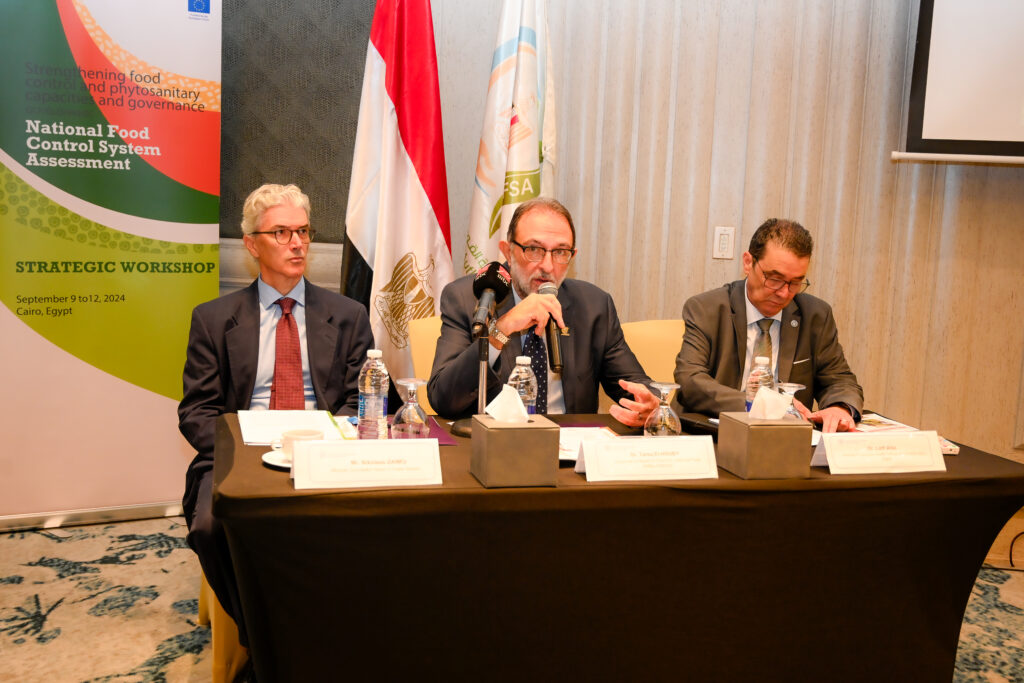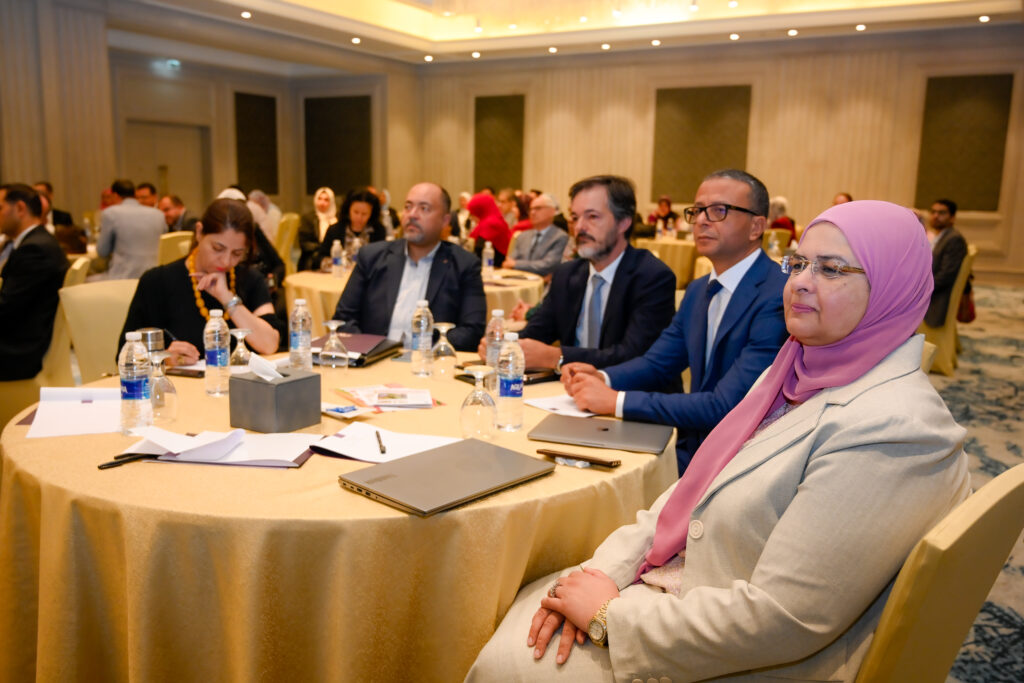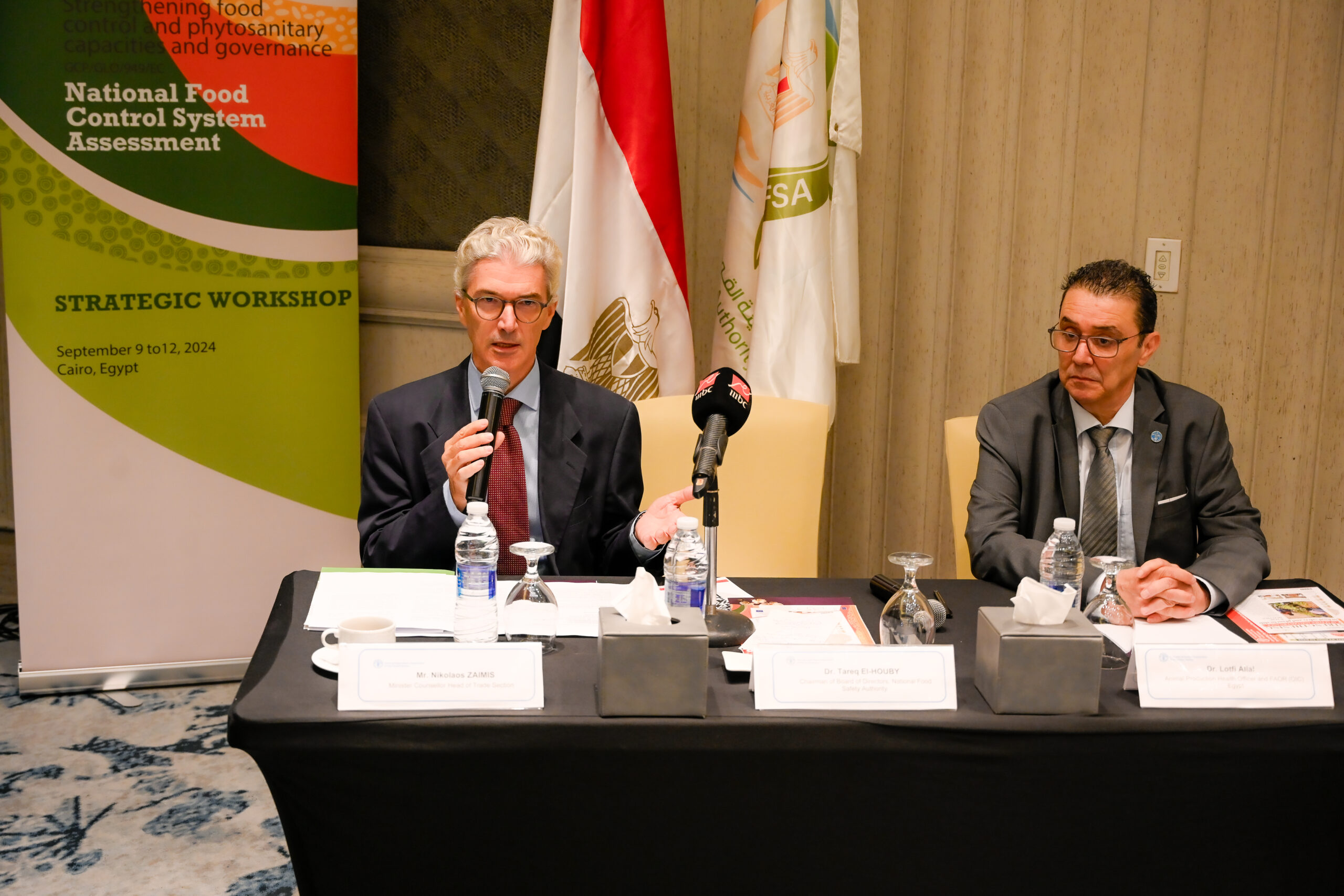Food & Climate
The National Food Safety Authority in Egypt includes the effects of climate change within the criteria for assessing food safety, productivity and supply chains in this activity, according to Dr. Tarek El-Hobi, head of the authority.
In response to a question from the “Food & Climate” platform, about whether the food safety assessment takes into account the issue of climate change and its effects, he added that the affiliated research centers follow all the new methods in agriculture and plastic recycling as part of the food production chain.
This came during the closing workshop to assess the food control system in Egypt, within the framework of the “Strengthening food control phytosanitary capacities and Governance” program, which is a project funded by the European Union to provide technical support and work with the competent authorities in 12 member states of the African Union, in coordination with the Food and Agriculture Organization of the United Nations (FAO).
Dr. Saber Mansour, Food Safety Advisor at FAO, added in response to the “Food & Climate” platform, that all data related to the issue of food safety is being collected, including climate change and water shortages, even food-related diseases among Egyptians; to identify the related risks and deal with them.
The assessment found a number of strengths such as the presence of a strong legislative structure, numerous and strong laboratories and analysis centers, and reliance on advanced technologies.
While it included a number of weaknesses that require improvement in the food safety system in Egypt. For example, despite the presence of a strong legislative structure, there is a problem related to the existence of previous laws concerned with some of the tasks specified by the latest food safety legislation, and therefore, they must be eliminated, so that the matter is in the hands of one party.
The National Food Safety Authority Law was issued in Egypt in 2017.

Food Safety Assessment Results
Participants in the workshop held by the FAO today, Thursday, September 12, 2024, in Cairo (the capital of Egypt) reviewed the results and recommendations of the assessment that took 8 months.
The Acting Representative of the FAO in Egypt, Dr. Lotfi Allal, indicated that marks the culmination of an assessment that the government of Egypt and its partners have been conducting with great effort and commitment for the past eight months, with the support of the Food and Agriculture Organization of the United Nations (FAO) and the European Union.
The assessment is part of the project “Strengthening food control and phytosanitary capacities and governance,” meant to build up capabilities, strengthen governance and improve strategic planning around two main components, namely food safety and plant health.
Its main goal is to assess the country’s national food control system, documenting its status, setting a baseline and prioritizing investments.
The project is based on a cutting-edge tool that was developed a few years ago by FAO and the WHO to guide such assessments in a structured, transparent and measurable manner throughout the entire food chain, measuring and evaluating progress over time.
FAO tool
The tool is called the food control system assessment tool. As part of the project, 8 member countries of the African Union (AU), are using it, with the support of FAO, to assess their national food control systems in a systematic manner.
The government of Egypt officially requested to undertake the assessment with the technical support of FAO and co-signed the project under the Sanitary and Phytosanitary (SPS) Policy Framework for Africa developed by the African Union to spur trade among Member States and is implemented in close collaboration with the African Commission Division for Rural Economy and Agriculture (AUC DARBE).
During the past eight months Egypt’s food control regulatory authorities have been working closely with the FAO assessment facilitation team.
They have undergone workshops and trainings and have collected data across all competent authorities thanks to their 32 trained focal points.
All the data and information collected was reviewed on paper and in person through a validation mission that took place in October of last year.
It’s been a process, one that has taken time, effort and concerted action from multiple partners and across multiple sectors: the government, the private sector, research organizations, and consumer associations, covering various topics in the food control system.
Just three days ago, technical officers from all the Component Authorities (CAs) gathered here to review, analyze and validate the assessment findings and recommendations, but also to develop a food control strategic action plan for each of the food control priorities identified aiming at strengthening the food control system of Egypt, Allal said.

The Advisor to the Minister of European Trade, and the participant on behalf of the European Union Ambassador to Egypt, Nicholas Zaimis, said that Egypt’s food exports to Europe doubled last year, and supporting food safety contributes to the increase in those exports.
He explained that there are many elements that determine food safety, and other elements of sustainability are constantly being added to them.

